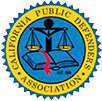(explained by Pasadena criminal attorney)
>>Traffic Stops: How you can protect your right to be free from illegal searches and seizures...

Under the Fourth Amendment to the U.S. Constitution and the California Constitution, citizens have a right to be free from illegal search and seizure by government officials, such as police. The laws governing a citizens 4th Amendment rights are legally complex but there are basic principals you should understand in order to protect your rights whenever encountering the police.
Often people encounter police after being stopped for a traffic violation. When you are pulled over for a minor traffic violation, an officer does not have a search warrant, so they can only search your person or vehicle if they have probable cause, or if you consent to the search. Probable cause means the officer has a “reasonable belief” that you have committed a crime or are about to commit a crime. If there is no probable cause and the person to be searched does not consent to the search, the search is generally illegal (There are few exceptions, such if you are on probation or parole, you probably waived your 4th Amendment rights at sentencing.).
Pasadena Criminal Defense Attorney Ann Gottesman explains precisely why:
"YOU DO NOT HAVE TO CONSENT TO A WARRANTLESS SEARCH!"
Many times, an officer has no reason to believe any crime is being committed aside from the traffic infraction for which the person is being pulled over. (See my BLOG that discusses the great 2009 U.S. Supreme Court case of Arizona v. Gant, which limits an officer’s ability to search your vehicle after a traffic stop.) Officers know that people are nervous and anxious when encountering police and they use this to their advantage. Officers know that if they get your consent, they can search you and your vehicle even if there was no probable cause to do the search. So don’t consent to the search! When you consent, you are waiving your constitutional right to be free from a search and seizure made without probable cause and without a warrant. If you consent and the officer finds any contraband, all that evidence will be used against you in court. If however, an officer conducts a search without probable cause and you do not waive your rights by foolishly consenting, then anything found can not be used against you. It is in such cases that I will file a Motion to Suppress the illegally obtained evidence and argue the motion to in court.
For example, if an over zealous officer decides to pull you over for speeding, insists on searching your car without probable cause and without your consent, and then finds drugs or some other illegal contraband, that evidence will not be allowed in front of the jury. When a Judge throws out such evidence (after the defense attorney files a motion to suppress under section 1538.5 of the Penal Code), the case is often dismissed because the prosecutor no longer has enough evidence to prove their case in court.
Illegal search and seizure is a classic defense in criminal law and one that I look for in every case I have. If you have been arrested or accused of a crime, you need an experienced and dedicated criminal defense attorney to represent you in court.
Call Pasadena Criminal Defense attorney Ann Gottesman, at 626-710-4021 for a FREE consultation to discuss your case and concerns.









